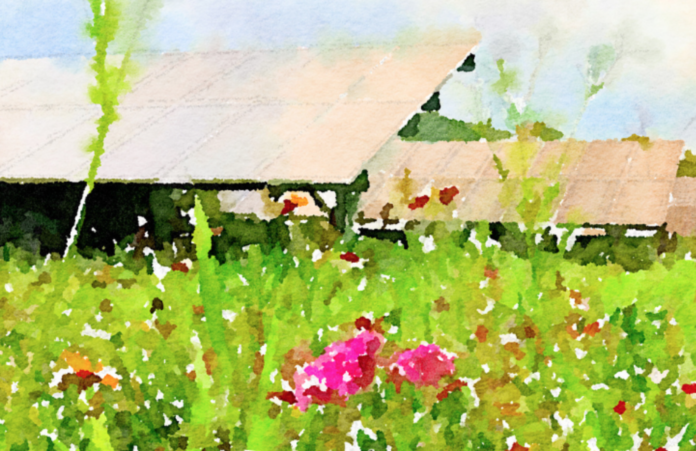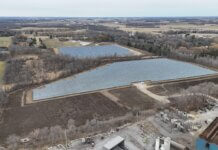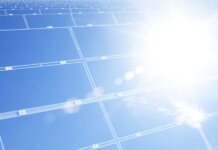The University of Illinois Urbana-Champaign, Facilities & Services (F&S) has completed construction of Solar Farm 2.0, totaling 12.3 MW DC, with the planting phase of the farm’s pollinator habitat commencing this month.
The project is the second solar farm constructed at the university and achieves clean energy sustainability goals outlined in the university’s Illinois Climate Action Plan (iCAP), nearly four years ahead of schedule. Clean energy production will now support approximately 12% of the school’s annual electricity demand.
The site’s 54 acres will serve as a major demonstration and research location for pollinator-friendly solar arrays. The University of Illinois Solar Farm 2.0 project exceeded the required 85 minimum points established by Illinois’ Pollinator Friendly Solar Site Act. With 134 points achieved on the pollinator scorecard, including the adjacent landscape buffer, the solar array officially “Provides Exceptional Habitat.” The custom seed mix designed by Natural Resource Services, with more than 21 different plant types that are native to the area, will make the land between and around the panels more resilient and create a natural habitat for a variety of local and migratory birds and beneficial insects. In total, the site will contain more than 6.5 million flowering plants and native grasses.
Solar Farm 2.0 was developed by Sol Systems, which built the farm with innovative features such as bifacial solar panels, single-axis trackers, pollinator habitat and zero waste construction practices. Through the firm’s development wing, Sol Customer Solutions, a joint venture between Sol Systems and Capital Dynamics, Capital Dynamics will serve as owners of the project with Sol Systems managing the asset throughout the 20-year term of the agreement.
Sol Systems partnered with Inovateus Solar, which constructed the solar arrays. Inovateus used reduced-waste construction practices that prevented as much as 45 tons of materials from reaching landfills. Specifically, Inovateus worked with F&S Waste Management to recycle nearly 94% of the project’s construction packaging, plastics, wood pallets and other refuse.
“In only four months, Solar Farm 2.0 has already become an integral part of the university’s energy enterprise,” says Dr. Mohamed Attalla, executive director of F&S. “There are days when the array is meeting almost 30% of the university’s electrical demand for that day. It has been extraordinary to watch this site’s renewable energy make an immediate impact to support learning and discovery across campus.”
Since the array was energized on Jan. 29, the installation has produced over 4,000 MWh. On May 1, Solar Farm 2.0 provided its largest output of 102 MWh in a single day. The installation puts the university at the top of the list for onsite clean energy production, according to the U.S. Environmental Protection Agency. In combination with other solar installations on campus, the Urbana campus is now generating approximately 27,000 MWh per year, ranking the University of Illinois Urbana-Champaign (UIUC) third amongst U.S. universities in onsite clean power production.
The university will purchase all energy produced by the array under a power purchase agreement (PPA) at a fixed price over a 20-year term. In addition to the long-term fixed rate, which hedges UIUC against future utility price uncertainty, the PPA allows the university to go solar with no upfront costs, providing an expected $300,000 in savings in the first year alone.




